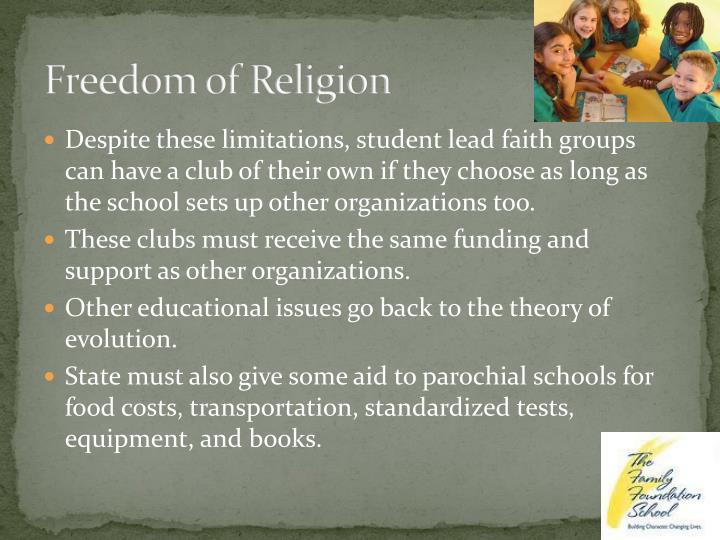
Jefferson’s demand for strict separation and religious freedom does not mean that he was irreligious. Jefferson reported triumphantly that the legislative effort to insert “Jesus Christ” in the preamble to the Virginia Statute was defeated, establishing that religious freedom was “meant to comprehend, within the mantle of it’s protection, the Jew and the Gentile, the Christian and Mahometan, the Hindoo and infidel of every denomination.” Beating back the effort to impose religious taxes in a sometimes bitter legislative battle, the triumphant Madison was able to have Jefferson’s Statute adopted, one of the great successes of Jefferson’s life. This proposal was opposed by James Madison and, in absentia, Jefferson (serving in Paris as ambassador). That effort almost succeeded in having a General Assessment adopted - a tax to benefit all Christian sects. After the American Revolution, there was a strong effort in Virginia to reinstitute church taxes to promote religion, led by Patrick Henry and supported by Edmund Pendleton, Spencer Roane, Benjamin Harrison, John Marshall, and Richard Henry Lee among others. Jefferson’s Statute for Religious Freedom and its history demonstrates the nature of Jefferson’s commitment. Baptists of Buckingham County warned that government leaving churches alone “is the only way to convince the gazing world, that Disciples do not follow Christ for Loaves, and that Preachers do not preach for Benefices.” Given Jefferson’s devout theism and belief that his relationship with God was a very personal matter, his declaration that “religion is a matter which lies solely between Man & his God that he owes account to none other for his faith or his worship” might be read in this context. Thus, John Leland, the great eighteenth century Baptist preacher, insisted that government must not give “indulgence, preferment, or even protection” to religion.
EXAMPLE OF FREEDOM OF RELIGION FREE
Many believed that while God desired human worship, devotions had to be completely a free will offering, not demanded or encouraged by temporal concerns (be that parents, society, or, certainly, government). Third, there may also have been a strong theological reason, shared with many dissenters, for Jefferson to insist upon religious freedom and separation of church and state.

Jefferson’s Bill for Religious Freedom, … possible the progressive development of that ‘entire union of opinion’ that alone could guarantee the survival of republican government.” As Peter Onuf explains, “Jefferson defined the old regime as an unholy alliance of ‘kings, nobles, and priests’ that divided the people in order to rule them. Without religious freedom and a strict separation of church and state, “kings, nobles, and priests” threatened to create a dangerous aristocracy. Jefferson saw religious freedom as essential for a functioning republic. Later in life, Jefferson referred to the early battles in this conflict as “the severest contests in which I have ever been engaged.” Ultimately, this political controversy resulted in the adoption of the Virginia Statute for Religious Freedom, one of the three items that Jefferson wished to have preserved on his grave marker. Before the Revolution, Virginia had an official church – the Church of England – and dissenters from that Church (primarily Presbyterians and Baptists) were discriminated against and seriously persecuted. This is true, but for Jefferson the political necessity of religious freedom went further. Many historians note that the broad diversity of ethnicities and religions in the thirteen colonies meant that religious freedom was necessary if the union was to be successful. Politically, Jefferson believed that the new nation required complete religious freedom and separation of church and state. His declaration to Benjamin Rush that “I have sworn upon the altar of god eternal hostility against every form of tyranny over the mind of man,” was made in the context of religious freedom: any government effort to control religious beliefs was “tyranny over the mind of man.” “For the use of … reason… every one is responsible to the God who has planted it in his breast, as a light for his guidance, and that, by which alone he will be judged,” Jefferson explained.

Jefferson’s commitment to religious freedom grew from several inter-related sources.įor Jefferson, an Enlightenment rationalist, reason had to govern in all areas, including religion. United States, the Court unanimously agreed that Jefferson’s Statute for Religious Freedom “defined” religious liberty and “the true distinction between what properly belongs to the church and what to the State.” In the first Supreme Court case addressing the religion clauses of the First Amendment, Reynolds v. Thomas Jefferson has been closely associated with religious freedom for more than two centuries.


 0 kommentar(er)
0 kommentar(er)
